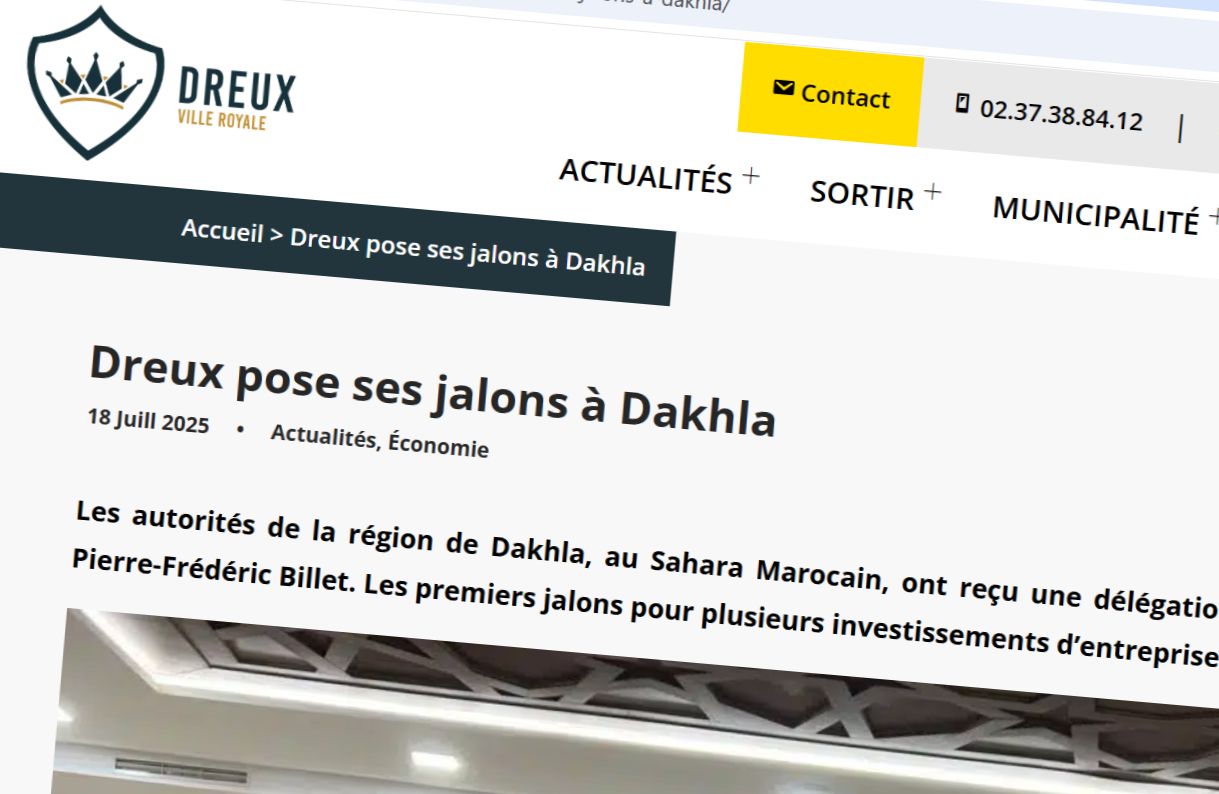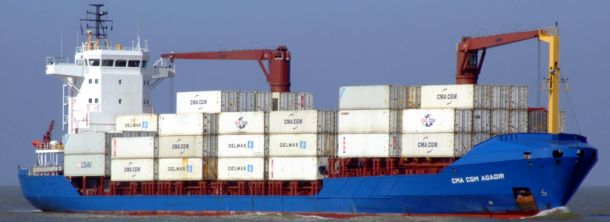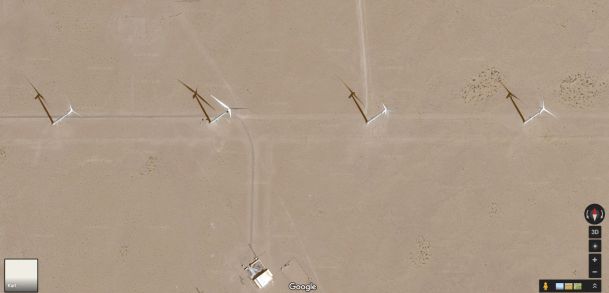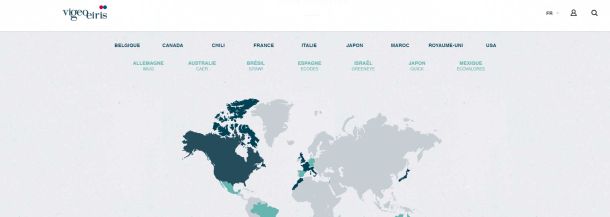
The French town of Dreux considers ignoring a ruling in the French courts and to engage with a controversial energy operation in occupied Western Sahara.
A company partly owned by the French town of Dreux is seeking opportunities to engage with the Moroccan government in occupied Western Sahara, according to Moroccan and French media.
The plans involve the development of solar or wind energy infrastructure in the southern part of Western Sahara, largely occupied by Morocco since 1975, through its majority owned energy company Gedia.
Gedia is majority-owned by the town of Dreux, a town some 80 km west of Paris. In July 2025, Dreux’ mayor Pierre-Frédéric Billet travelled into the occupied territory alongside Gedia’s CEO Patrick Polge.
Local French media in Dreux reported that the visit aimed to advance both Gedia’s investment plans and a proposed “twinning” agreement between Dreux and the town of Dakhla, located in the occupied territory. On its website, the Dreux city council refers [or download] to Dakhla as part of the “Sahara marocain” – language that directly contradicts established international and European legal positions.
Western Sahara Resource Watch (WSRW) has contacted the municipality, asking how these plans can be reconciled with binding EU and international law on Western Sahara. To date, the Dreux city council has not responded.
The United Nations lists Western Sahara as a Non-Self-Governing Territory without an administering power. The International Court of Justice has confirmed that Morocco holds no sovereignty over the territory, whose people, the Saharawis, have the right to self-determination. The Court of Justice of the European Union (CJEU), in ten consecutive rulings since 2015, has affirmed Western Sahara’s “separate and distinct” status from Morocco, and ruled that no agreement with Morocco can be applied to the territory without the consent of the Saharawi people, represented by the Polisario Front.
Gedia’s plans, and those of its majority owner, appear to have taken shape at an event in the French Senate in autumn 2024. Following the gathering, Dreux' Mayor Billet posted on LinkedIn [or download] 1 December 2024: “Thank you to Salah BOURDI for this great and fruitful moment of exchanges between Moroccan, French, and French-Moroccan elected officials committed to Franco-Moroccan friendship at the Senate. The City of Dreux is more than ever a spearhead of this unique relationship. Renewable energies (#ENR) are a new gateway opened with the GEDIA Group.”
The Senate event took place around the same time as President Emmanuel Macron’s visit to Rabat, where he called for increased French investments in the illegally occupied territory.
Macron's position was not referenced in the January 2025 ruling of France's Conseil d’État, which upheld the CJEU's judgment in case C-399/22, confirming that Western Sahara is not part of Morocco. Political statements by President Emmanuel Macron thus carry no legal weight, and do not shield companies from litigation risks.
“As a public institution in an EU Member State, the City of Dreux - and by extension its majority-owned company Gedia - has a clear obligation to act in line with EU law”, said WSRW coordinator Sara Eyckmans.
“By pursuing projects in occupied Western Sahara through agreements with Morocco, they risk acting against the rulings of the EU Court of Justice, entrenching Morocco’s unlawful control, and undermining the Saharawi people’s right to determine their own future.”
Since you're here....
WSRW’s work is being read and used more than ever. We work totally independently and to a large extent voluntarily. Our work takes time, dedication and diligence. But we do it because we believe it matters – and we hope you do too. We look for more monthly donors to support our work. If you'd like to contribute to our work – 3€, 5€, 8€ monthly… what you can spare – the future of WSRW would be much more secure. You can set up a monthly donation to WSRW quickly here.
Controversial container route has opened
And another vessel is on its way.
WSRW asks French ENGIE about business ethics
The French multinational ENGIE operates in occupied Western Sahara. WSRW today wrote the company, asking how they consider the legal-ethical aspects of such operations.
Vigeo Eiris: two years without answer on support to occupation
The UK-French company Vigeo Eiris certified and defended a Moroccan-Saudi energy project in occupied Western Sahara. WSRW calls on the board to engage on the matter.
Polisario goes after leading French banks
The representation of the people of Western Sahara has lodged complaint against the banks BNP Paribas, Société Générale, Crédit Agricole, the insurance company Axa Assurance, airline Transavia and tourist agency UCPA over the accusation of colonisation.



